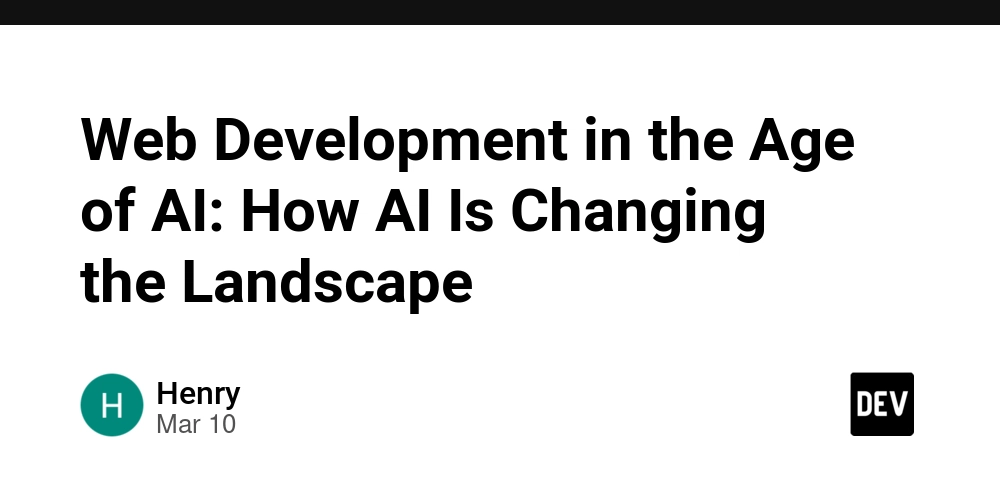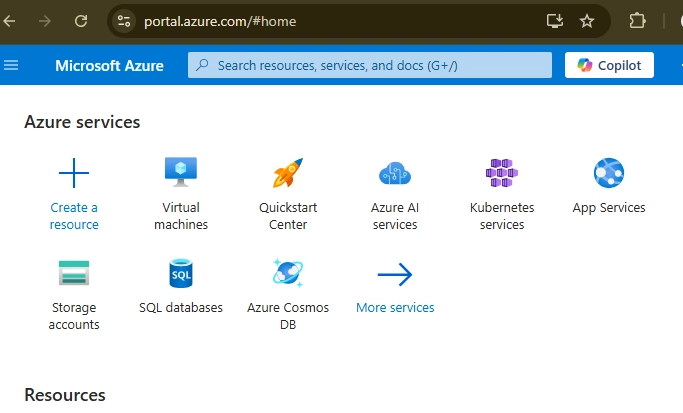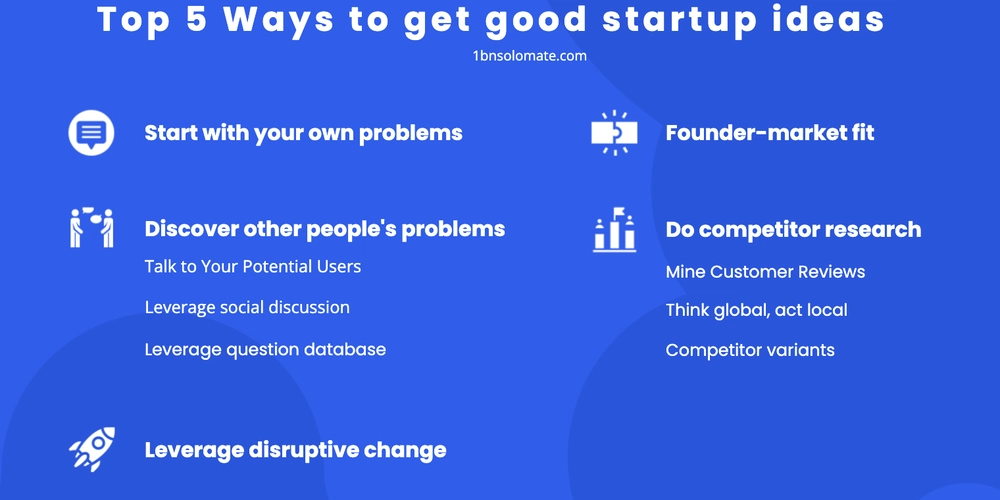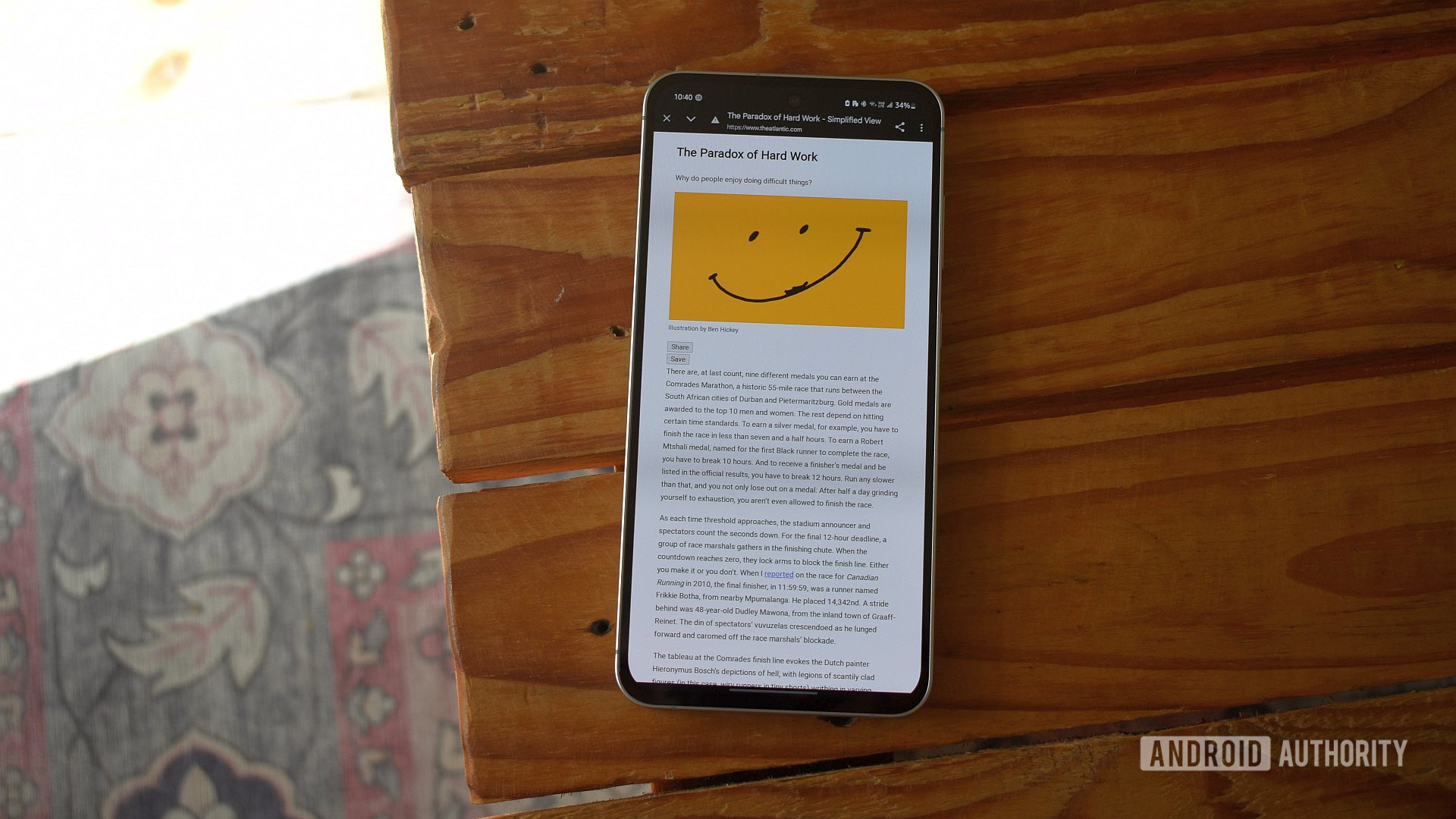Web Development in the Age of AI: How AI Is Changing the Landscape
The digital landscape is evolving rapidly, with artificial intelligence (AI) playing a pivotal role in reshaping various industries, including web development. AI’s impact on the way websites are created, optimized, and maintained is far-reaching, influencing everything from code generation to personalized user experiences. As the demand for more efficient, engaging, and scalable web solutions continues to grow, AI technology has emerged as a game-changer for web developers and businesses alike. In this article, we explore how AI is revolutionizing web development, particularly through automation, smarter user interfaces, and enhanced user engagement. We will also examine the role of companies like Black Airplane, a leader in technology solutions, and Pell Software, Artelogic, and other industry players that are embracing AI to enhance web development practices. The Role of AI in Automating Code Generation One of the most significant contributions AI has made to web development is automating code generation. Traditionally, developers wrote lines of code manually, a process that could be time-consuming and prone to human error. However, with advancements in AI, platforms now exist that can generate high-quality code automatically, based on user inputs or predetermined templates. AI-driven platforms such as GitHub Copilot, powered by OpenAI, have revolutionized the coding process. These tools assist developers by suggesting lines of code, writing entire functions, and even completing sections of code based on context. This has dramatically reduced the time spent on repetitive coding tasks, allowing developers to focus on higher-level problem-solving and creative work. Companies like Black Airplane are utilizing AI to streamline web development processes, enabling them to deliver faster and more efficient solutions to their clients. By leveraging AI for code generation and error checking, these companies can ensure the quality of their websites while speeding up the development lifecycle. Smarter User Interfaces Powered by AI User experience (UX) is at the forefront of web design, and AI is transforming how interfaces are designed and customized. AI-driven tools help create adaptive, intelligent interfaces that adjust to user behavior, ensuring a more personalized and engaging experience. For example, AI-powered chatbots are being integrated into websites to provide real-time customer support, answering queries and solving problems without human intervention. Chatbots have become essential for e-commerce sites, where quick responses to customer questions can significantly impact sales conversion rates. Artelogic, a software development company, has integrated AI chatbots in many of its projects to improve customer engagement and increase customer satisfaction. In addition to chatbots, AI enables more dynamic web interfaces that can adapt to a user’s behavior in real-time. For instance, AI algorithms can predict what content users might be interested in, adjusting the layout or recommending products based on previous interactions. This dynamic approach is increasingly important for businesses seeking to retain customers and enhance brand loyalty. AI-Driven Personalization for Enhanced User Engagement Personalization has become a critical component of modern web development. Websites that can deliver content tailored to the needs and preferences of individual users are more likely to build stronger connections and foster brand loyalty. AI’s ability to analyze large amounts of user data has made it possible to offer highly personalized experiences at scale. With AI, businesses can now track user behavior across their websites and applications to deliver more relevant content, offers, and recommendations. This could include personalized product recommendations for e-commerce platforms or tailored content for news and media sites. Companies like Pell Software are integrating machine learning and AI algorithms to create personalized web experiences that enhance customer engagement and drive conversions. AI can also be used for A/B testing, helping developers fine-tune websites and applications by automating the process of testing different design variations and optimizing content for better performance. This level of personalization, powered by AI, allows web developers to create more intuitive, user-friendly websites that meet the unique needs of their target audience. AI and Web Development Automation The automation capabilities of AI extend beyond just code generation. Web development tools powered by AI can automatically perform tasks that were once done manually, such as content management, bug detection, and website maintenance. For example, AI can identify errors in a website’s code or layout before they cause problems, suggesting fixes or automatically correcting the issues. For businesses, this automation means fewer human resources are needed to manag

The digital landscape is evolving rapidly, with artificial intelligence (AI) playing a pivotal role in reshaping various industries, including web development. AI’s impact on the way websites are created, optimized, and maintained is far-reaching, influencing everything from code generation to personalized user experiences. As the demand for more efficient, engaging, and scalable web solutions continues to grow, AI technology has emerged as a game-changer for web developers and businesses alike.
In this article, we explore how AI is revolutionizing web development, particularly through automation, smarter user interfaces, and enhanced user engagement. We will also examine the role of companies like Black Airplane, a leader in technology solutions, and Pell Software, Artelogic, and other industry players that are embracing AI to enhance web development practices.
The Role of AI in Automating Code Generation
One of the most significant contributions AI has made to web development is automating code generation. Traditionally, developers wrote lines of code manually, a process that could be time-consuming and prone to human error. However, with advancements in AI, platforms now exist that can generate high-quality code automatically, based on user inputs or predetermined templates.
AI-driven platforms such as GitHub Copilot, powered by OpenAI, have revolutionized the coding process. These tools assist developers by suggesting lines of code, writing entire functions, and even completing sections of code based on context. This has dramatically reduced the time spent on repetitive coding tasks, allowing developers to focus on higher-level problem-solving and creative work.
Companies like Black Airplane are utilizing AI to streamline web development processes, enabling them to deliver faster and more efficient solutions to their clients. By leveraging AI for code generation and error checking, these companies can ensure the quality of their websites while speeding up the development lifecycle.
Smarter User Interfaces Powered by AI
User experience (UX) is at the forefront of web design, and AI is transforming how interfaces are designed and customized. AI-driven tools help create adaptive, intelligent interfaces that adjust to user behavior, ensuring a more personalized and engaging experience.
For example, AI-powered chatbots are being integrated into websites to provide real-time customer support, answering queries and solving problems without human intervention. Chatbots have become essential for e-commerce sites, where quick responses to customer questions can significantly impact sales conversion rates. Artelogic, a software development company, has integrated AI chatbots in many of its projects to improve customer engagement and increase customer satisfaction.
In addition to chatbots, AI enables more dynamic web interfaces that can adapt to a user’s behavior in real-time. For instance, AI algorithms can predict what content users might be interested in, adjusting the layout or recommending products based on previous interactions. This dynamic approach is increasingly important for businesses seeking to retain customers and enhance brand loyalty.
AI-Driven Personalization for Enhanced User Engagement
Personalization has become a critical component of modern web development. Websites that can deliver content tailored to the needs and preferences of individual users are more likely to build stronger connections and foster brand loyalty. AI’s ability to analyze large amounts of user data has made it possible to offer highly personalized experiences at scale.
With AI, businesses can now track user behavior across their websites and applications to deliver more relevant content, offers, and recommendations. This could include personalized product recommendations for e-commerce platforms or tailored content for news and media sites. Companies like Pell Software are integrating machine learning and AI algorithms to create personalized web experiences that enhance customer engagement and drive conversions.
AI can also be used for A/B testing, helping developers fine-tune websites and applications by automating the process of testing different design variations and optimizing content for better performance. This level of personalization, powered by AI, allows web developers to create more intuitive, user-friendly websites that meet the unique needs of their target audience.
AI and Web Development Automation
The automation capabilities of AI extend beyond just code generation. Web development tools powered by AI can automatically perform tasks that were once done manually, such as content management, bug detection, and website maintenance. For example, AI can identify errors in a website’s code or layout before they cause problems, suggesting fixes or automatically correcting the issues.
For businesses, this automation means fewer human resources are needed to manage websites and applications. Developers can rely on AI to handle routine tasks, freeing up time to focus on creative aspects and higher-value work. Black Airplane and other software development companies have leveraged AI-driven solutions to reduce the need for manual testing, accelerate site deployment, and enhance website performance with minimal downtime.
AI-Powered SEO: Boosting Website Visibility
Search engine optimization (SEO) is crucial for ensuring a website ranks well in search engine results, but it can be challenging to stay ahead of the ever-changing algorithms used by Google and other search engines. AI is playing a significant role in modern SEO strategies by helping web developers optimize websites more effectively.
AI-powered SEO tools can analyse vast amounts of data to identify keywords, content gaps, and optimization opportunities that might otherwise be overlooked. For instance, AI algorithms can assess user search behaviour, determine the most effective keywords, and automatically adjust content to match search intent. This not only boosts a website’s SEO performance but also enhances its visibility on search engine results pages.
As AI continues to evolve, its role in SEO will only grow, providing more automated and data-driven insights to help businesses stay competitive. Companies like Artelogic are already integrating AI-based SEO techniques into their web development processes to ensure their clients’ websites rank higher and attract more traffic.
Optimizing Mobile Web Development with AI
With the growing use of mobile devices, optimizing websites for mobile performance has become more critical than ever. AI is playing a key role in mobile web development by automating mobile responsiveness and improving user experience on smaller screens.
AI tools can analyse how users interact with a mobile website, identifying pain points such as slow load times or difficult navigation. By analysing this data, AI can suggest improvements or even automatically optimize websites for mobile users. This enhances the user experience and ensures websites are fast, responsive, and easy to use, even on mobile devices with limited screen sizes.
As the mobile web development landscape continues to evolve, AI will play an increasingly important role in delivering responsive, user-friendly mobile sites. Companies like Black Airplane have already adopted AI-powered tools to optimize their mobile web development processes, ensuring a seamless experience for users across devices.
Summary
The integration of AI into web development has opened up a world of possibilities, enabling companies to create more efficient, personalized, and innovative websites. As we’ve seen, AI is transforming everything from code generation to user interfaces, customer engagement, and SEO optimization.
Web development companies like Black Airplane, Pell Software, and Artelogic are at the forefront of this transformation, leveraging AI to improve the quality of their web solutions and deliver superior results to their clients. As AI technology continues to evolve, its role in web development will only become more integral, and businesses that adopt AI early will have a competitive edge in the digital marketplace.
By embracing AI’s capabilities, web developers can ensure they’re not only keeping up with industry trends but also shaping the future of web development. With automation, smarter user interfaces, and data-driven personalization, AI is making it easier than ever to create impactful and engaging websites that meet the demands of today’s fast-paced digital world.













































































































































































![[The AI Show Episode 142]: ChatGPT’s New Image Generator, Studio Ghibli Craze and Backlash, Gemini 2.5, OpenAI Academy, 4o Updates, Vibe Marketing & xAI Acquires X](https://www.marketingaiinstitute.com/hubfs/ep%20142%20cover.png)


























































































































![[FREE EBOOKS] The Kubernetes Bible, The Ultimate Linux Shell Scripting Guide & Four More Best Selling Titles](https://www.javacodegeeks.com/wp-content/uploads/2012/12/jcg-logo.jpg)



![From drop-out to software architect with Jason Lengstorf [Podcast #167]](https://cdn.hashnode.com/res/hashnode/image/upload/v1743796461357/f3d19cd7-e6f5-4d7c-8bfc-eb974bc8da68.png?#)






































































































.png?#)





.jpg?#)































_Christophe_Coat_Alamy.jpg?#)








































































































![Rapidus in Talks With Apple as It Accelerates Toward 2nm Chip Production [Report]](https://www.iclarified.com/images/news/96937/96937/96937-640.jpg)







































































































































